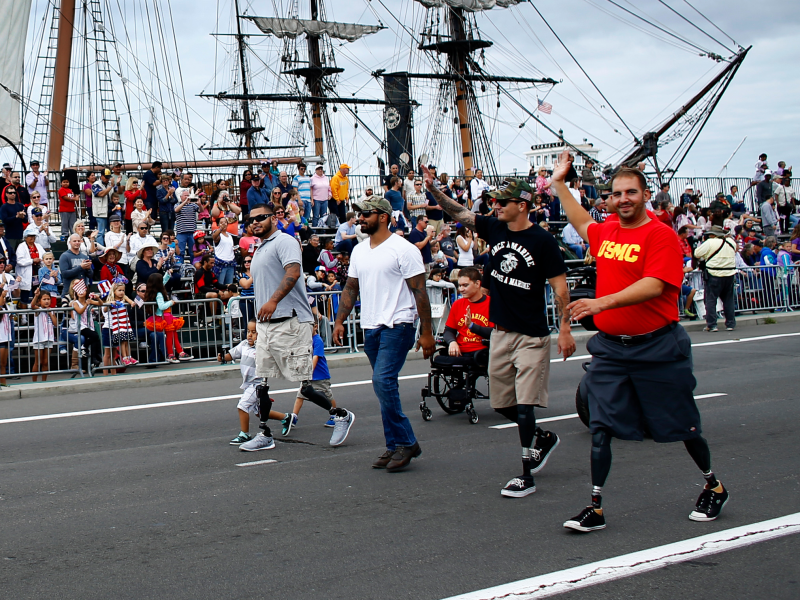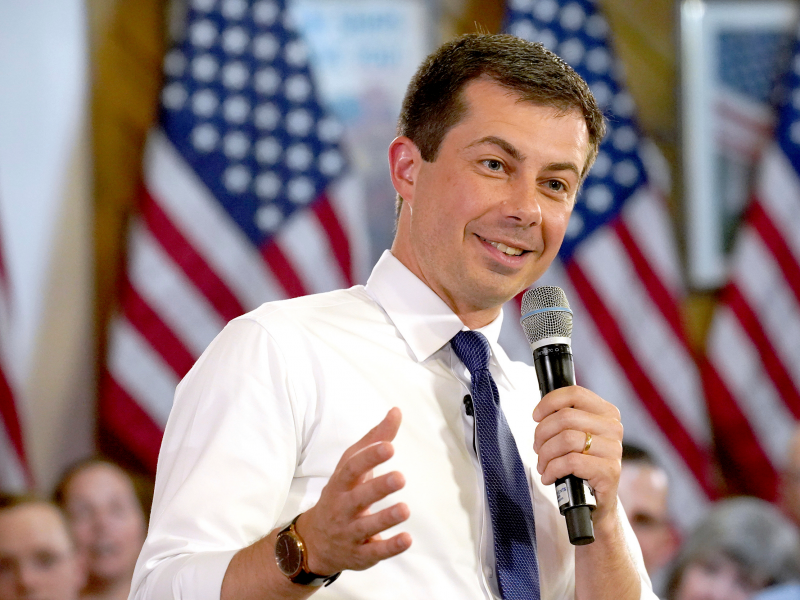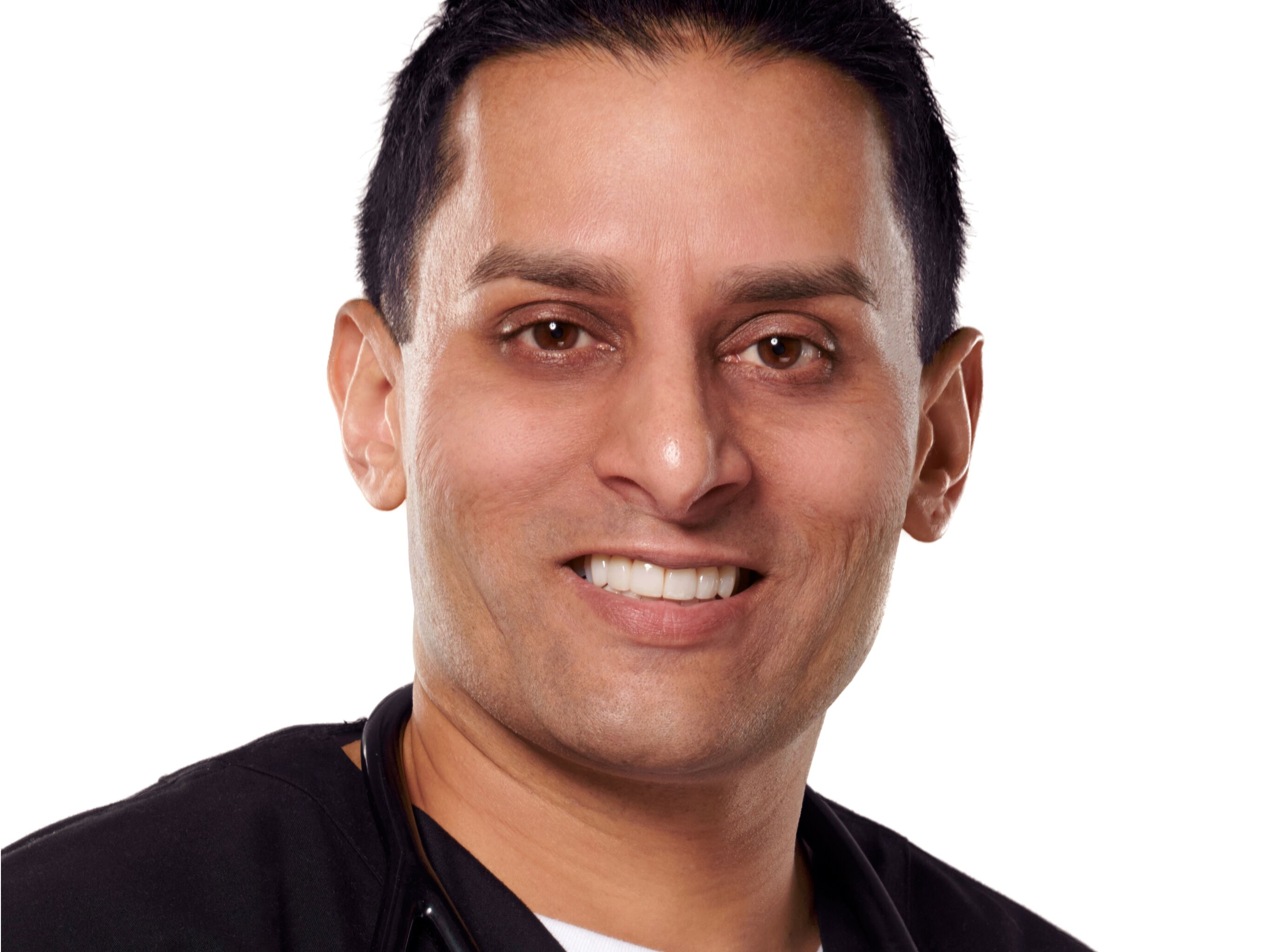- Dr. Sudip Bose is an Iraq war veteran who served one of the longest continuous combat tours by a military physician since World War II. He treated Saddam Hussein after his capture.
- Today, he’s the founder of The Battle Continues, a charity for injured veterans. He’s also an emergency medicine physician and professor.
- The unemployment rate has fallen for veterans, but many are underemployed. Stigma against them in the workplace persists – and that can contribute to veterans feeling lonely and isolated.
- Employers should realize what veterans bring to the table, employ them in jobs they’re suited for, and provide support in their transition to the workplace.
- Visit Business Insider’s homepage for more stories.
On this 101st Veterans Day, the good news is that US military veterans are contributing to the economy like never before.
The unemployment rate for veterans dropped to 3.5% in 2018, the lowest annual rate since the Bureau of Labor Statistics began collecting the data in 2008. More impressively, veteran unemployment fell to 3.2% in October compared with 3.5% for non-veterans, marking the 14th consecutive month that veterans participated in the labor force at a higher rate than non-veterans.
Today’s situation is dramatically different than ten years ago when unemployment rates for young veterans spiked to over 20% and the media was filled with stories about the problems many veterans had in acclimating to civilian society.
As a military doctor who served on the battlefield, I’ve witnessed the physical and psychological wounds that many veterans have to overcome after their return to the US. That so many veterans now hold jobs and are leading productive civilian lives is a great joy to me and, I’m sure, to most other Americans.
Problem solved? Well, not completely.
Veterans are often underemployed relative to their skills and experiences - particularly in their first job following an overseas deployment.
It's common to find a former officer with a college degree and military leadership experience working at a low-level sales position or similar type of job where they have little opportunity to utilize their leadership skills.
Part of the problem is returning veterans usually have few connections in the civilian workforce, and limited experience with the job-hunting process. They often struggle with identifying appropriate jobs and, once they land an interview, convincing employers that their military experiences will be an asset to the organization.
At the same time, most veterans are under financial pressure to find a new source of income, fast. They often jump at the first job offered, even if it pays poorly and doesn't tap into the skills and experiences they developed in the military.
Not surprisingly, veterans tend to leave their first job after returning to the workforce faster than a non-veteran employee, according to research conducted by ZipRecruiter and Call of Duty Endowment. The good news is the research found that most of these veterans eventually find a better opportunity and stay at their second or third jobs longer than non-veterans.
Veterans, as a group, possess qualities that make them great employees. They typically are disciplined, hardworking, loyal, courageous, and team-oriented. According to ZipRecruiter and Call of Duty Endowment, a large majority of employers report that veterans perform "better than" or "much better than" non-veterans and display high levels of perseverance and leadership.
While most companies are favorably disposed toward hiring veterans, many have gone a step further and instituted programs to recruit and hire veterans. There are also plenty of other resources available to help veterans find good jobs that weren't around a decade ago, when more than 10% of veterans were unemployed.
Yet misperceptions of veterans persist

But despite all this progress, veterans continue to be misunderstood and mischaracterized by many employers. Some employers think vets may not relate well to fellow employees and customers, or fit their company culture. I suspect others are worried about hiring a vet who suffers some form of post-traumatic stress.
A recent study conducted by Duke University's Fuqua School of Business revealed that employers believe veterans are less-suited for jobs that involve frequent interaction with people than non-veterans. The stigma is that veterans are better at working with equipment than with people.
Portrayals of veterans in movies and television as lonely, distressed characters suffering from post-traumatic stress has permeated the public consciousness. That perception, in my experience, creates a barrier between combat veterans and civilians and makes it harder for vets to adjust to civilian life.
It's important to understand that post-traumatic stress is not a disorder; it's a completely normal human response to a life-threatening or highly stressful event. Yes, people remember horrible events, and some may have "flashbacks" when they encounter something that reminds them of the event - but it's not a debilitating condition for the vast majority of vets.
Through my foundation, The Battle Continues, I help vets who suffer from mental conditions related to their combat experiences. What I consistently find is that the vets who are suffering the most are leading lonely and isolated lives. When we solve the loneliness and isolation problem, their brains become filled with new experiences and relationships and the memories of war lose their power.
After they return to civilian life, many veterans miss the comradeship and brotherhood they experienced in the military. If they don't have a strong family support network and old friends they can reconnect with, they can easily fall into a pit of depression and a sense of separation from society.
There’s more work to be done around veteran mental health and employment

It's sadly true that the suicide rate for veterans continues to be significantly higher than the rate of non-veterans. Male veterans commit suicide 1.3 times more than other adult men. It's even worse for female veterans; they commit suicide 2.2 times the rate for other adult women.
Every day about 20 US veterans commit suicide. Every year since 2008, the number of veteran suicide deaths has exceeded 6,000 - even as the total number of veterans dropped. That should be unacceptable to all of us.
In 10 years, we've substantially reduced veteran unemployment. In the next 10 years, let's endeavor to reduce the veteran suicide rate.
Medical professionals need to do a better job of identifying high-risk individuals and provide them with immediate and sustained treatment. That won't be easy and it may require legislation to expand veteran services and to reduce the cost of care.
Businesses need to continue to hire veterans and to assist them with the transition from the military to the civilian workplace. Veterans are accustomed to a clear power structure and receiving and giving orders. Managers should help veterans understand the culture and the most effective way to interact with colleagues up and down the organizational chain.
As a society, we need to foster a better sense of community among our veterans. Little things can make a big difference. Businesses like golf courses, bowling alleys, or sports teams can sponsor veteran events. Many already do - but more would help.
While most employers are happy to hire veterans, they should examine what may be their own unconscious biases regarding the types of jobs that are suitable for veterans. Many veterans are fully capable of interacting with customers and working on and leading teams.
We owe it to our veterans to get them the medical help and social support systems they need and jobs that fully utilize their capabilities. It's not a Democrat or Republican issue. It's simply the right thing to do.
After completing his MD at 25 years old and serving one of the longest military combat tours by a physician since World War II, Dr. Bose loves teaching others how to defy limits to accelerate achievement and impact. He is currently an emergency medicine physician and professor based in Texas and Chicago, and is the co-founder of several leading medical-tech companies. Learn more at DocBose.com










